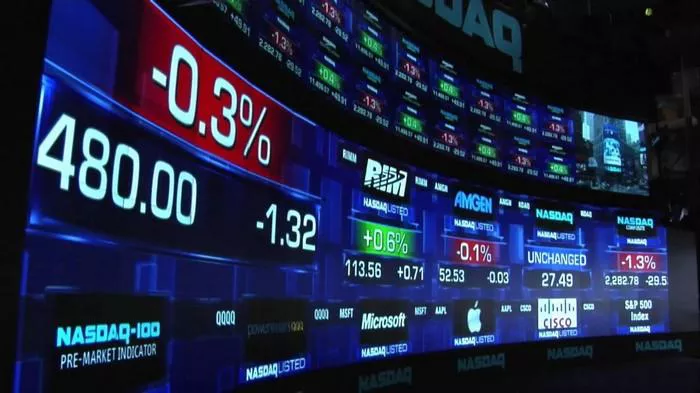Japanese stocks surged at the market opening, recovering some of the significant losses experienced during Monday’s global market downturn, which erased billions from markets spanning New York to London. Concurrently, US equity futures rose and Treasury yields fell.
Japan’s primary stock indices both leapt nearly 11%, after plummeting over 12% the previous day. South Korea’s Kospi Index climbed more than 5%, while futures in Hong Kong indicated a positive start. These early gains suggest that traders are regaining composure following a tumultuous session marked by a record spike in Wall Street’s “fear gauge” – the VIX, which saw an unprecedented increase since data collection began in 1990.
“As Japanese stocks rebound, it’s likely that the rest of the Asian markets will follow suit today,” stated Tomo Kinoshita, a global market strategist at Invesco Asset Management. “Yesterday’s steep decline in Japan’s stock prices was far more severe than in Europe and the US, making it clear to market participants that Japan’s market correction was excessive.”
Concerns about a potential US recession, the cooling of artificial intelligence hype, and a strengthening yen leading to the unwinding of carry trades had sparked a three-day global equity selloff. Market expert Ed Yardeni drew parallels between the current downturn and the 1987 crash, when despite fears, the US economy managed to avoid a recession.
The yen dropped as much as 1.5% against the dollar on Tuesday before recovering some losses. The currency has still appreciated nearly 11% this quarter, driven by expectations of further interest rate hikes by the Bank of Japan. The Nikkei 25 futures triggered a circuit breaker before the market opened, following its largest single-day slump in yen terms on Monday. Additionally, a surge in Kospi 200 and Kosdaq 150 futures in South Korea prompted another “sidecar” to momentarily halt program trading buy orders.
Treasury yields increased across the curve at the Asian open, with the benchmark 10-year yield rising five basis points to 3.84%. This was a rebound from a low of 3.67% on Monday, driven by a stronger-than-expected US ISM services report.
The decline in US stocks has validated the warnings of prominent bearish analysts, who continue to caution about the risks associated with an economic slowdown. Mislav Matejka of JPMorgan Chase & Co. indicated that equities would remain under pressure due to weaker business activity, declining bond yields, and a worsening earnings outlook. Michael Wilson of Morgan Stanley warned of unfavorable risk-reward scenarios.
“This doesn’t look like the ‘recovery’ backdrop that was hoped for,” Matejka wrote. “We remain cautious on equities, anticipating that the phase of ‘bad is bad’ will arrive,” he added.
Yardeni emphasized the similarities to the 1987 crash, noting, “This is very reminiscent of 1987. We had a market crash that occurred in a single day, with the implication being an imminent recession. However, no recession followed. It was more about the internal market dynamics.”
After a robust first half of the year, the market had become overextended on a short-term basis, setting a high bar for positive news, explained Keith Lerner of Truist Advisory Services. “Our base case remains unchanged. Our analysis still supports giving the bull market the benefit of the doubt. However, we anticipated a more volatile environment in the latter half of July and August due to the sharp rebound from April, heightened sentiment, and the seasonally weaker period of the year,” Lerner said.
Elsewhere in Asia, economists predict that Australia’s central bank will maintain its cash rate at 4.35% for the sixth consecutive meeting on Tuesday. Despite cooling, local inflation remains high, necessitating the Reserve Bank to keep its key interest rate at a 12-year peak.
Meanwhile, oil prices rose from a seven-month low early Tuesday, as production halts at Libya’s largest field shifted focus back to the Middle East.


